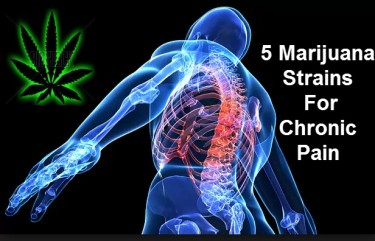Does Cannabis Affect Pain Tolerance?

We experience pain in a multitude of forms. Headaches, joint aches, a burn.
But our pain tolerance refers to the highest amount of pain that we are able to handle. Each person’s pain tolerance varies because it depends on the interactions between our brain and our nerves.
Some people have a higher pain tolerance compared to others. It’s the reason why one of your friends can withstand having a tattoo done without batting an eyelash, and why another friend of yours finds it extremely painful. Regardless, being able to experience pain is important because it signals to the brain when there is an injury or illness that needs to be addressed – with a toothache, for example, or when you touch a hot pan.
There are many things that influence our pain tolerance. These include age, genetics, illness, medications, sex, and past experience with pain among others.
Today, let’s focus on the role of medications in pain tolerance.
Opioids
Whenever we feel pain, it’s become so common for us to reach for over-the-counter opioid medications. Stronger opioids are also usually prescribed to handle intense pain such as those related to cancer or other chronic illness. Common prescription opioids include morphine, fentanyl, hydrocodone, codeine, and oxycodone.
But this dependency on opioids for pain is actually dangerous because it results in opioid-induced hyperalgesia. This occurs when you take opioids for too long that it makes you experience much lower pain due to a decreased pain tolerance. Though hyperalgesia is more common in people who take prescription opioids, these medications cause a more pronounced sensitivity in the pain that is felt. There are detrimental side effects to this, such as addiction to opioids and potential overdosing – which can be fatal.
Cannabis
On the contrary, when you medicate with cannabis for pain, it does not affect pain tolerance.
A recent study conducted by Michelle St. Pierre, a doctoral student who does research at the UBC Okanagan’s psychology department, confirmed that regular cannabis consumption doesn’t increase pain sensitivity. “Recent years have seen an interest in the adoption of cannabinoid medicines which have demonstrated effectiveness for the treatment of chronic pain,” she says. “However, the extent to which frequent cannabis use influences sensitivity to acute pain has not been systematically examined.”
She adds that there is a greater interest in the efficacy of cannabinoids for pain relief in the last decade. “This study should come as good news to patients who are already using cannabis to treat pain,” explains the study’s co-author Zach Walsh. “Increases in pain sensitivity with opioids can really complicate an already tough situation; given increasing uptake of cannabis-based pain medications it’s a relief that we didn’t identify a similar pattern with cannabinoids.”
For the study, St. Pierre analyzed the differences between pain tolerance and intensity among her subjects. She recruited volunteers who consumed cannabis at least 3x a week, as well as those who didn’t consume it at all. They were asked to do a cold-pressor task test, which required them to dip their hand and forearm into icy water for a period of time.
The authors assumed that people who admitted they consumed cannabis regularly would report more pain sensitivity, though they did not find any difference. “There is a different effect from opioid users; sustained use of opioids can make people more reactive to pain. We wanted to determine if there was a similar trend for people who use cannabis frequently,” she says. “Cannabis and opioids share some of the same pain-relief pathways and have both been associate with increases in pain sensitivity following acute use.”
St. Pierre explains that using opioids to treat chronic pain have serious risks such as addiction, hyperalgesia, and overdose. Patients who have hyperalgesia may want to increase the dosage to better manage pain, which only leads to an increased addiction risk.
“Our results suggest frequent cannabis use did not seem to be associated with elevated sensitivity to experimental pain in a manner that can occur in opioid therapy,” St. Pierre says. “This is an important distinction that care providers and patients should consider when selecting options for pain management. These findings are particularly relevant in light of recent reports of opioid overprescribing and high rates of pain in the population, as it suggests that cannabis may not carry the same risk of hyperalgesia as opioids.”
An earlier study conducted in 2018 echoed the same findings. It was carried out by Martin De Vita, a doctoral researcher at Syracuse University’s clinical psychology program. He studied more than 1,830 experimental findings on the impact of cannabinoids, which were conducted over the course of 40 years. Once they narrowed down the initial pool of data to 18, they analyzed data from more than 440 participants. “The mean quality and validity scores across the studies was high, and analyses did not suggest publication bias,” De Vita says.
The results revealed that using cannabinoid drugs resulted in a lower “perceived unpleasantness of painful stimuli” but only a “modest increase in experimental pain threshold and tolerance.”
“Cannabinoid drugs may prevent the onset of pain by producing small increases in pain thresholds but may not reduce the intensity of experimental pain already being experienced,” write the authors. “Instead, cannabinoids may make experimental pain feel less unpleasant and more tolerable, suggesting an influence on affective processes.”
This is good news, considering the shocking rates of the opioid epidemic in the United States. It’s also significant because it means that if you are medicating with cannabis frequently to treat pain, it will not cause you to need more over time because you no longer experience relief – unlike what occurs with opiate medications.
CANNABIS FOR PAIN TREATMENTS, READ MORE...
CANNABIS STRAINS FOR CHRONIC PAIN, READ OUR PICKS!






